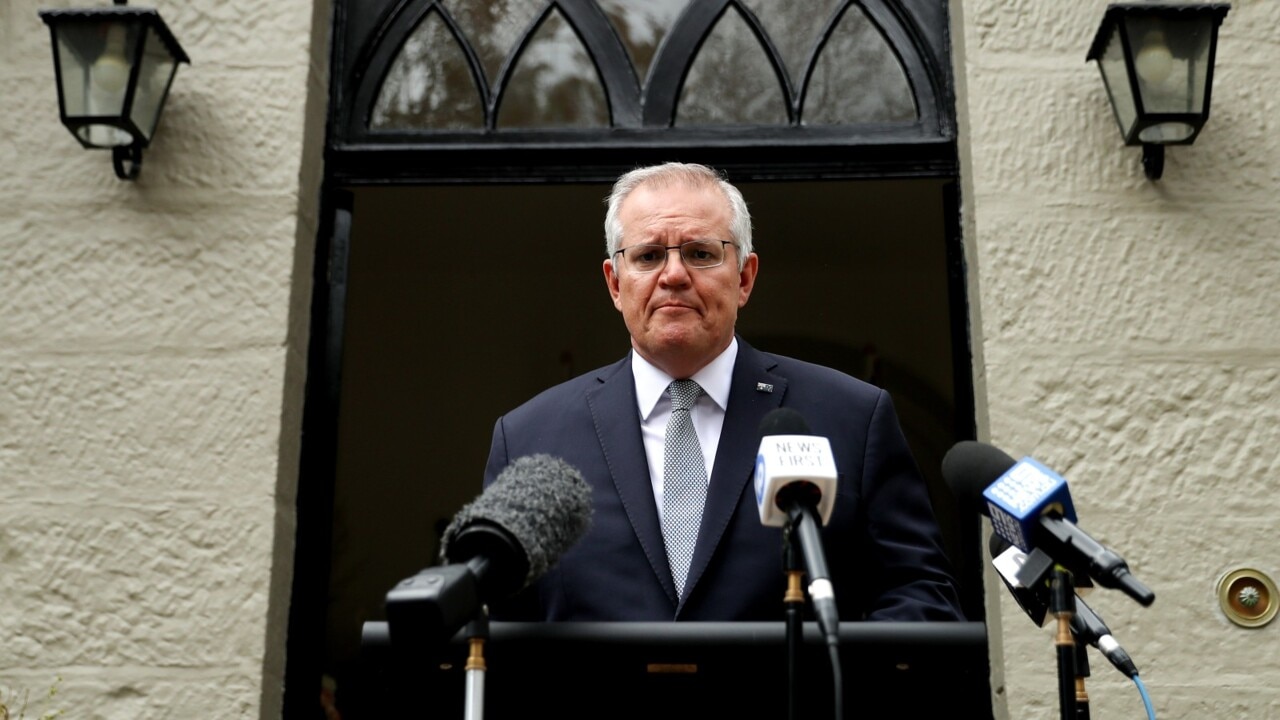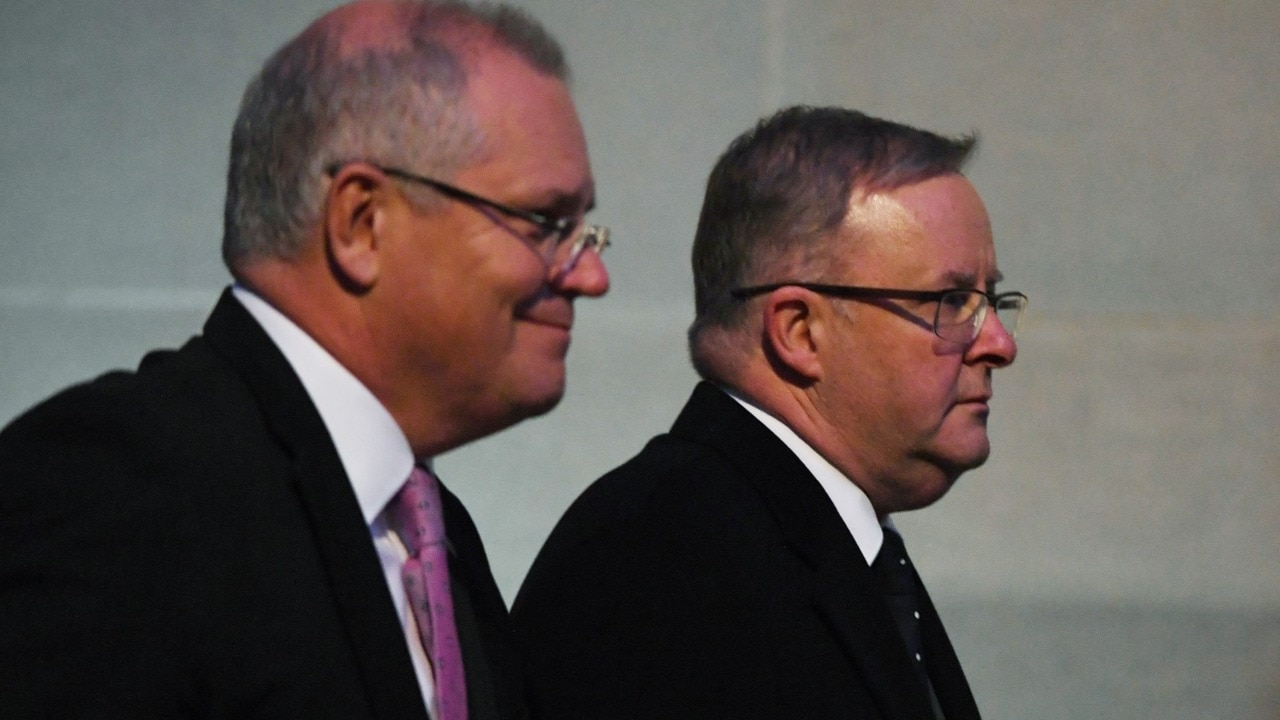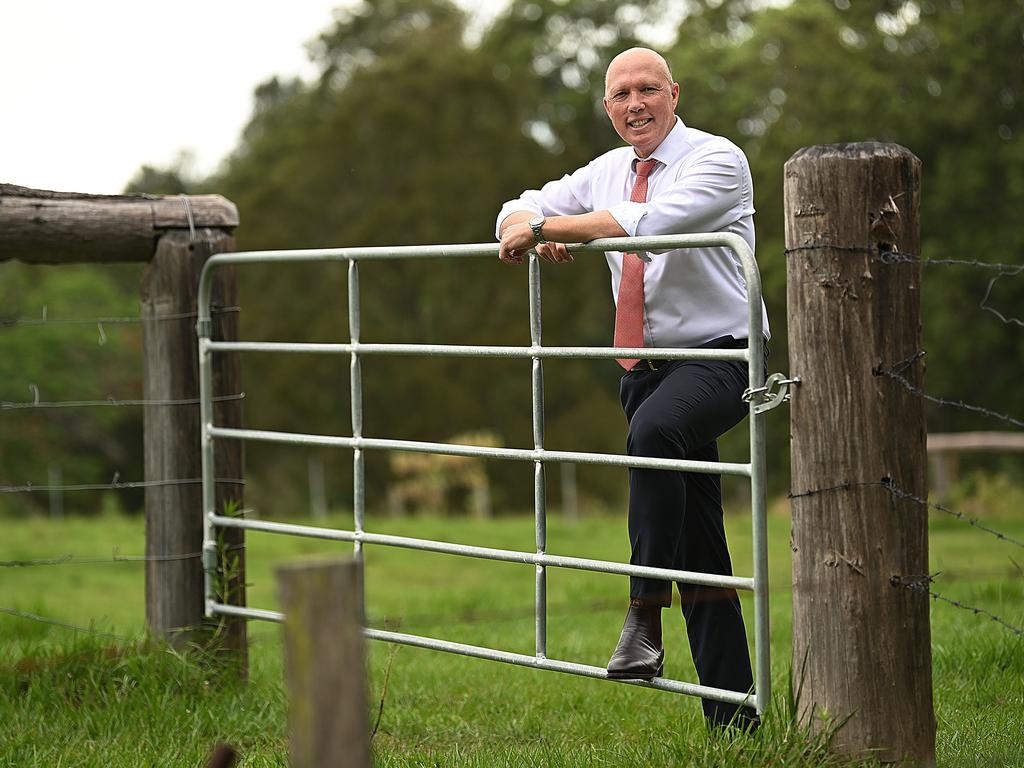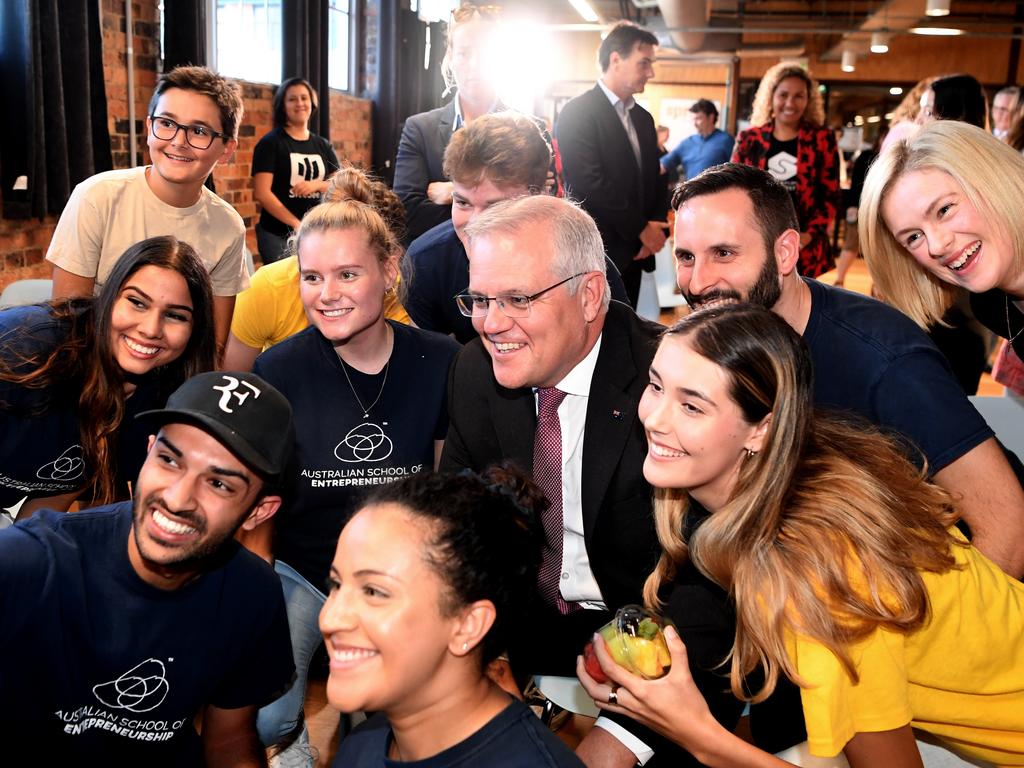Two-horse race that will grip the nation
While the daily media cycle fusses over climate warfare and who tells the most porkies, you would rather be in the Coalition’s position than Labor’s.

That alone, among a raft of unusual circumstances, makes next year’s election campaign a difficult one to assess. Despite poor opinion polls and the punditry’s prevailing (and typical) predictions of Coalition doom, it is one of a number of factors that should favour Morrison when the contest gets real.
Although first terms are notoriously difficult for governments, voters usually give prime ministers a second term – since Menzies, the only prime minister to win a first election and be rejected by voters at the subsequent poll was Paul Keating. All the others either did not make it to election day, or won.
Perhaps voters like to stave off buyer’s regret, generously allow time for leaders to find their feet, or maybe they just hate to admit they made a poor selection at the previous poll. On that basis, Morrison is entitled to expect a forgiving electorate.
Except, when you trace his career, ascension and election, you realise they closely resemble Keating’s – the one elected PM who was rejected three years later. Like Keating, Morrison was hardly new; a senior minister and treasurer in a long-term government before taking the prime ministership in a leadership ruction, he won an election most expected him to lose and now seeks reaffirmation after a full term in office.
The Keating precedent is ominous in other ways too. He was able to win in 1993 largely because the Liberals, under John Hewson, ran a politically suicidal “Fightback” package of radical policies; Morrison won in 2019 largely because Labor’s Bill Shorten presented a big target with expensive climate and taxation initiatives.
On this reading, amusingly, Anthony Albanese must emulate John Howard. He needs to critique the government without proposing radical change, offering himself as a safe change of direction. This will not be easy because Howard was known and Albo is not; Howard was conservative and Albo is Socialist Left; and Howard was authentically middle-aged and mainstream, while Albo is an authentic middle-aged, inner-city hipster.
Keating appealed more to the so-called elites than working families and was widely resented for the “recession we had to have”. Morrison, on the other hand, campaigns with the common touch, and has delivered tax cuts and unprecedented pandemic largesse.
Morrison is developing a vulnerability in shifty language and changeable policies – a weakness Labor and the media amplify as their main attack. The Prime Minister has shown he can be smug when things are going well, and narky under pressure.
To recapture his 2019 campaign mojo, Morrison needs to remain even-tempered. Perhaps he should never look at Twitter or the ABC.

The election is likely to be tight. Morrison will need to pick up seats in NSW and Queensland to offset likely losses elsewhere. From this distance, a hung parliament with one side or the other cobbling together a minority government is a live possibility, but it is easier to foresee a path to Coalition victory than defeat.
Even on the marginal seat challenge, presuming it will be trench warfare, you would rather be in the Coalition’s position than Labor’s. There are eight Labor seats protected by a margin of less than 2 per cent, whereas Labor, which needs to win seven seats to form government, can target only three Liberal seats with margins below 2 per cent.
A swing of 4 to 5 per cent to Labor would unleash a cascade of seats but such a large and uniform swing is highly unlikely. We are more likely to see a close national vote with swings varying in size and direction, state by state and seat by seat.
If Morrison could pinch back two NSW seats, say Macquarie and Eden-Monaro with less than 1 per cent margins, and perhaps one other such as Dobell, or Queensland’s Lilley or Blair, then Labor would have to win 10 seats elsewhere to win government. The weight of media expectation should sit heavily on Albanese’s shoulders because the task is more onerous than many suggest.
A major Labor weakness is something it too often sees as a strength; its preoccupation with radical climate action. This obsession, and misjudgment about the public appetite, cost it government in 2013 and prevented it from winning against Morrison last time out.
But it has been gifted an opportunity now because Morrison (unwisely, in my view) has sought to protect a group of leafy, inner suburban electorates by bowing to the climate action zeitgeist. Instead of accentuating a policy difference with Labor on climate and energy, Morrison is running with the pack.
Putting the economic madness to one side, on politics alone this is Morrison’s biggest gamble. Given his own pandemic spending, he can no longer plausibly scare voters about Labor and debt and deficit, and by signing up to net zero by 2050 he has surrendered his best chance for election policy differentiation.
Since 2010, when Julia Gillard promised “no carbon tax”, each election has been won by a party promising not to go overboard on climate change policy. Gillard’s broken promise and the green left hysteria on this issue create a dangerous cocktail for Albanese.
He could claim a moral victory for Labor, avoid substantial policy differences and eliminate climate as an election issue. But he shows every indication of looking to placate the ALP Socialist Left and prevent a drift to the Greens by outbidding the Coalition on climate action.
If he continues to portray the Coalition as climate laggards and promises higher targets and more “ambitious” policies, he will give Morrison a point of difference and open himself up to a scare campaign. Just as he did in 2019, Morrison can contrast his practical policies against the ideological extremes of his opponents.
Almost certainly the budget will be brought forward to April, with the election held early in May. The post-pandemic recovery will be in full swing, with even the recalcitrant states opening borders and learning to live with Covid-19.
Labor’s wasted energy lambasting the vaccine rollout will be a distant memory as the government boasts one of the world’s highest vaccination rates, lowest per capita death rates, and strongest economic performances. Morrison and Treasurer Josh Frydenberg’s pandemic management is a good story to tell. But voters tend not to cast their ballots as acts of gratitude. The past will inform their judgments, but they wisely look to what parties offer for the future. In this regard, Morrison and Albanese are both playing with relatively blank canvasses when it comes to the “vision thing”.
Still, when considering the future, the national security environment will loom large. Historically, the past three years will be remembered for two reasons; the pandemic, and the turning points in our relationship with China and our defence and security posture.
Morrison has been wise and brave in standing up to China, making difficult but necessary calls. The switch from diesel submarines to nuclear – in a joint venture with our two most important allies rather than a European power with whom we have a relatively shallow bilateral relationship – is a historic step that addresses our vulnerability at an ominous time.
Yes, the timelines are long, and we have put ourselves back to square one. But the only thing worse than belatedly correcting an error, is never correcting it; and our best hedge during a capability gap is the US alliance.
The electorate comprehends this repositioning, viscerally. And Labor have foolishly put themselves on the wrong side of the argument by identifying with French complaints rather than Australian assertiveness. This was only exacerbated by Keating’s shameless kowtowing to Beijing this week. Along with former foreign minister Bob Carr, Victorian Premier Daniel Andrews and others, Keating’s interventions will be a constant reminder of an entrenched ALP constituency for undercutting the alliance and welcoming China as the neighbourhood behemoth.
This is a serious debate in the real world of foreign policy formulation and, also, the cut and thrust of daily politicking. It is a pity for Morrison that he has an invisible foreign minister. Still, he will run the arguments himself, along with Defence Minister Peter Dutton.
Albanese and his foreign affairs spokeswoman Penny Wong want to footprint the government’s strength on China, but it will not be easy. There is mischief to be made, such as: if Albanese were to win, would he send Carr to Beijing as ambassador? Or perhaps the job would go to Sam Dastyari?
Would Keating be consulted on foreign policy? Perhaps he could be sent to Paris.
While the daily media cycle fusses over barbs from a jilted French president, or silly arguments about which politician tells the most porkies, the substance of the election debate is yet to play out. When it does, it will present strong opportunities for Morrison and the Coalition, and spell trouble for Albanese and Labor.







At the risk of putting the mockers on him, Scott Morrison will be the first prime minister since John Howard to win an election and then lead his party to the next one. This demonstrates the tumult of the post-Howard political era: in 2010, 2013, 2016 and 2019, voters were denied an opportunity to deliver a verdict on the prime minister they installed.